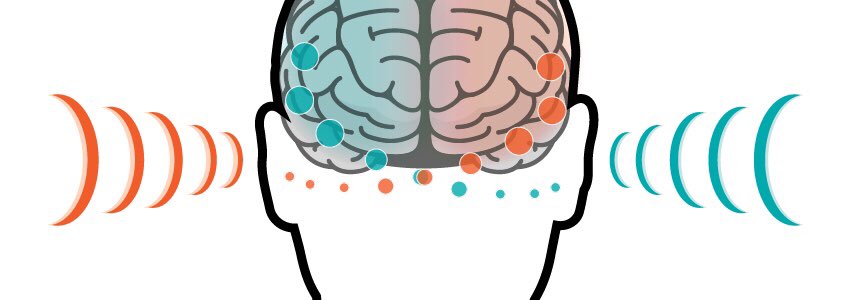🎧 [JSP] BINAURAL LISTENING
It seems we’ve been doing it wrong all along!
Bottom line: #interpreting with just 1 ear fully covered may be harmful not just for our hearing - but also for our brain.
Explanation and possible solutions below👇
#BinauralListening #1nt
It seems we’ve been doing it wrong all along!
Bottom line: #interpreting with just 1 ear fully covered may be harmful not just for our hearing - but also for our brain.
Explanation and possible solutions below👇
#BinauralListening #1nt

Solution? Both ears fully covered + 👉self-monitoring👈 (that is, listening both to “Floor” AND to your own voice through your headphones).
⚠️ Important: this does not mean that you should now simply fully cover the other ear and keep interpreting as usual. Please read below.
⚠️ Important: this does not mean that you should now simply fully cover the other ear and keep interpreting as usual. Please read below.
Medical and acoustic explanation in this excellent article by @InterStartRT.
@Dolm_in_NRW might have some valuable info on the topic too :)
Some possible technical solutions below.
linkedin.com/pulse/more-me-…
@Dolm_in_NRW might have some valuable info on the topic too :)
Some possible technical solutions below.
linkedin.com/pulse/more-me-…
Some excerpts:
“Shifting one ear or removing one ear piece completely and using only one ear in simultaneous interpretation essentially puts you in a situation of a hearing loss patient.”
“Shifting one ear or removing one ear piece completely and using only one ear in simultaneous interpretation essentially puts you in a situation of a hearing loss patient.”
“Using only 1 ear makes our brain think the sound is not loud enough, as a result we tend to increase the volume of our headset to compensate for the soft sound.On the contrary,the binaural summation of signals can increase perceived loudness of signal by up to a ratio of 2:1”
“So if you use only one ear, or even shift one ear, potentially, there may be more damage from an acoustic incident or an acoustic shock, or online ‘dirty’ sound.”
👉 Some possible technical solutions:
(Remember: both ears fully covered AND self-monitoring)
- For #r1nt from a PC, solution is easy (works both with mics like Yeti AND headsets such as Sennheiser SC160)
(Remember: both ears fully covered AND self-monitoring)
- For #r1nt from a PC, solution is easy (works both with mics like Yeti AND headsets such as Sennheiser SC160)
https://twitter.com/interrausch/status/1302991416763838464?s=2
- For ‘traditonal’ #1nt, still unchartered territory - not so easy as consoles don’t seem to have this function. However, some headsets do. See here:
—- >
—- >
https://twitter.com/chapanov_v/status/1292905315038527490?s=21
Surprised, shocked, flabbergasted? What are you thoughts? 🤔
*Sorry Cyril, I didn’t tag you properly when I shared your article. Now: @InterStarRT
• • •
Missing some Tweet in this thread? You can try to
force a refresh








